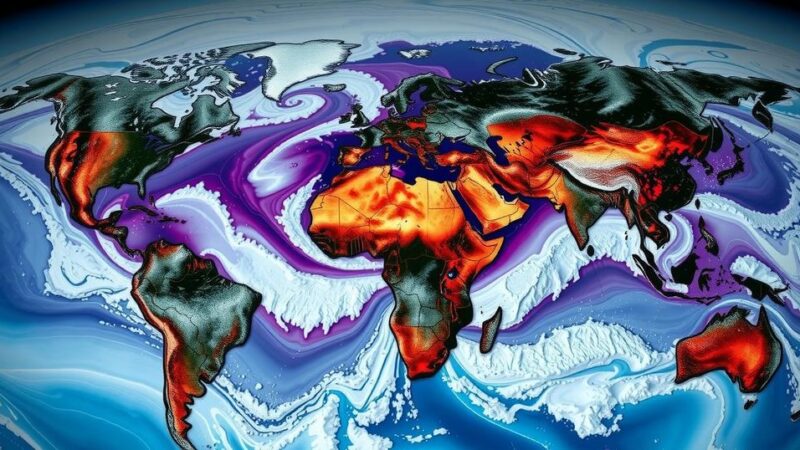Cyclone Chido has affected approximately 329,510 people in Mozambique, particularly in Cabo Delgado, Nampula, and Niassa. Extensive damage includes the destruction of over 39,000 homes and disruption of health facilities. Humanitarian response efforts are ongoing but face challenges due to limited resources and increased needs among the displaced population.
The devastation caused by Tropical Cyclone Chido in Mozambique continues to escalate, impacting approximately 329,510 individuals across the provinces of Cabo Delgado, Nampula, and Niassa. Assessment teams are reaching additional areas, revealing the extensive damage, including the destruction of thousands of homes, the disruption of health services, and the loss of clean water access. While response efforts are active, the challenges related to limited resources and the pressing needs of the affected population remain significant.
Tropical Cyclone Chido struck Mozambique’s northern provinces, leading to severe humanitarian needs as reported by national agencies and humanitarian organizations. With many families displaced and infrastructure compromised, the country faces compounded vulnerabilities among those already affected by ongoing conflicts. The National Institute for Disaster Management has emphasized the urgent requirements for shelter, food, and healthcare amidst the destruction caused by the cyclone.
In summary, the ongoing assessments further highlight the extensive impact of Cyclone Chido, with a substantial portion of the population affected. The humanitarian response seeks to address immediate needs; however, the prolonged challenges of resource limitations and damage report indicate a need for urgent international support. The situation remains critical as Mozambique navigates the aftermath of the cyclone amidst a challenging rainy season.
Original Source: reliefweb.int







